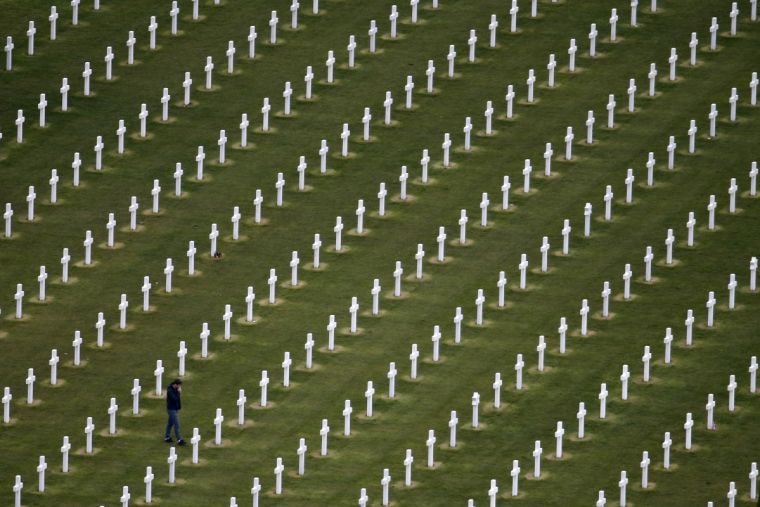Father's Day: 'I only got to know and understand my father after his death'

Now in my mid fifties, I have clear memories of my Dad at the same age. And curiously enough it's his clothing that always springs to mind, at least initially. Dad playing cricket with us on a Devon beach in 1968 sporting a jacket and tie. Or travelling to Scotland ten years later to visit my sister and family, dapper in tweed and another tie. Both of these instances involved summer holidays; a dress down time of the year for many people. But not my father and I suspect, for many other men of his generation. He could be formal, aloof and withdrawn at times. Another symptom of the generation whose childhood and adolescence was overshadowed by the imminence of World War Two.
But my Dad's war story was different to many others. He was a Conchie (Conscientious Objector), refusing to fight on the basis of religious conviction. He believed all warfare, wherever fought, to be wrong and that Christians who bore arms were in contravention of Jesus' teaching. It was a subject that made him passionate at home, although strangely silent in his public life as a Baptist minister. And for most of my childhood and adolescence it was my father's war narrative that formed my own view of the Second World War; except of course it was a non story. Whereas he resisted Hitler with own conscience, my mother fought him in the poorly ventilated huts of Bletchley Park. Bound and gagged by the Official Secrets Act, she said nothing of her experiences for seventy years whilst my father stole the spotlight with his pacifist views.
As a child I felt immense pride in his stance. My Dad was different, brave, deciding to follow Jesus rather than Winston Churchill. But in my late teenage years I became less certain as I read about the atrocities committed by the Third Reich. And it was one of my Dad's heroes that provoked me to think differently.
My father's shelves contained several books by Dietrich Bonhoeffer, a German Lutheran pastor whose opposition to Hitler resulted in his own death. Letters and Papers from Prison are his account of life in the cells awaiting execution; a beautiful compendium of prayer, theology and unrequited love.
Unlike Dad however, Bonhoeffer was not a pacifist. Even though he too preached a message of non violence, he concluded that a failure to resist Hitler was essentially an act of complicity in his war crimes. Violence was wrong, taking the life of another was a great sin but killing Hitler was less sinful than allowing him to pursue his warmongering. One evil was morally better than the other. Dad loved Dietrich because he obeyed the voice of conscience and not the will of the regime. But I began to question my father's stance. If Dietrich Bonhoeffer could suspend his own Christian ethics in the failed plan to assassinate Adolf, why had Dad done nothing to prevent Hitler?
Dad died in 2011 at the great age of 92; having celebrated nearly half a century as a minister and 65 years of marriage. And as I wrote the account of my mother's war story (My Secret Life in Hut Six), the quiet wound of doubt opened up again. Why hadn't my father fought in the war? Was it conscience or cowardice? By now of course it was too late ask direct questions; I could only rely on diaries, endless sermon jottings and scribblings. I wanted to get behind the mythology surrounding his pacifism and find the man who dared to be different.
Like every man that's ever lived, I wanted to understand Dad.
In the end I discovered a man whose views on politics, Jesus and radical discipleship remained constant throughout his life. I unearthed a man who had his own contradictions and hang ups. In other words, a man just like me. I found a young man whose conscientious objection was fuelled originally by the campaigning zeal of broad minded Christians only to be later boxed in and muted by pious evangelicalism. Purity of heart was pitted against social issues and won the day; a theological tension I think he felt throughout his life.
If only I had spoken more about these things when he was alive, particularly about my own misgivings to his absolute certainty that pacifism was the correct Christian response to war. Some readers will remember the British Telecom adverts of yesteryear featuring the actor Bob Hoskyns with the repeating slogan 'It's good to talk.' It is and I wish I'd done more of it.
Gethin Russell-Jones is author of Conchie: What my father didn't do in the war, published by Lion Books.











